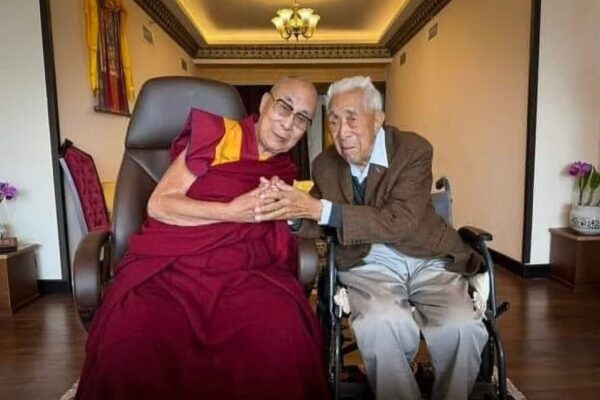Myanmar junta frees nearly 1,000 Rohingya from prison, group says
Myanmar’s military government has released from prison nearly 1,000 members of the mostly Muslim Rohingya minority, a human rights group said on Monday, a rare gesture of goodwill towards the persecuted community. The junta has not announced the release and there has been no explanation as to why they were set free but it comes days after a court in Argentina issued arrest warrants for the junta chief and 22 other military officials for crimes committed against the Rohingya in a 2017 crackdown. “It is clear that the junta wants to cover up the crimes that they’ve committed against Rohingya,” said a senior member of group Political Prisoners Network Myanmar, Thike Htun Oo. “They immediately released the Rohingya from detention as soon as a court in Argentina issued international arrest warrants for them. We must be aware of this,” he told Radio Free Asia on Monday. Most of the 936 people being released on Sunday from prison in the main city of Yangon, including 267 women and 67 children, were arrested after the military overthrew an elected government in 2021, Thike Htun Oo said. They were due to be sent by boat from Yangon, to the Rakhine state capital of Sittwe in western Myanmar, he said. On Saturday, officials from the military’s Immigration Department entered Insein Prison in Yangon to issue the Rohingya with identity documents, Thike Htun Oo said, though adding he could not confirm exactly what type of documents they were given. Details of what those being released had done to be locked up in the first place were not available but most were believed to have been imprisoned for violating restrictions on their movements. RFA tried to telephone the Prison Department spokesperson and the office of the department’s deputy director general for information about the release but they did not answer. Most Rohingya are from Rakhine state and most are stateless, regarded as migrants from South Asia and not one of the ethnic groups classified as indigenous in Buddhist-majority Myanmar’s constitution. RELATED STORIES Myanmar junta bombs Rohingya Muslim village killing 41, rescuers say Rohingya at risk of being forgotten, activists say Violence against the Rohingya explained Forced to fight? Myanmar government troops led a bloody crackdown in Rakhine state in 2017 in response to Rohingya militant attacks on the security forces and more than 700,000 members of the persecuted Rohingya community fled to neighboring Bangladesh, where most remain. U.N. experts later said the military carried out mass killings and gang rapes with “genocidal intent.” The United States in 2022 determined that the violence committed against the Rohingya amounted to genocide and crimes against humanity. The Myanmar military said it was engaged in legitimate security operations. A court in Argentina ruled last week that international arrest warrants be issued for the self-appointed president and junta chief, Senior Gen. Min Aung Hlaing, and 22 other military officials for crimes committed against the Rohingya. Argentina became the first country to open an investigation into serious crimes against the Rohingya under the principle of universal jurisdiction, a legal principle allowing for the prosecution of serious crimes no matter where they were committed. Political analyst Than Soe Naing also said the junta was trying to improve its image in light of the Argentinian court ruling. “They’re releasing the Rohingya in order to try to restore justice from their side but they’re not going to succeed in trying to cover up their criminal mistakes,” he said. The leader of a Rohingya welfare organization said there was a danger those being released would be pressed to fight for the military in Rakhine state where an ethnic minority insurgent group battling for control of the state, the Arakan Army, or AA, has forced junta forces into a few small pockets of territory, including Sittwe. The co-founder of the Free Rohingya Coalition, Nay San Lwin, said the military was already pressing Rohingya men in camps for displaced people in Sittwe to join junta forces. “They are really worried about being forcibly recruited,” he said of those who had been released. Last year, embattled junta forces recruited Rohingya into militias to help fight the AA, which draws its support from the state’s Buddhist, ethnic Rakhine majority. The recruitment by the military of Rohingya led to attacks by the AA in which international human rights organizations said Rohingya civilians were killed. The AA denied that. Translated by Kianan Duncan. Edited by RFA Staff. RELATED STORIES Myanmar junta bombs Rohingya Muslim village killing 41, rescuers say Rohingya at risk of being forgotten, activists say Violence against the Rohingya explained We are : Investigative Journalism Reportika Investigative Reports Daily Reports Interviews Surveys Reportika


